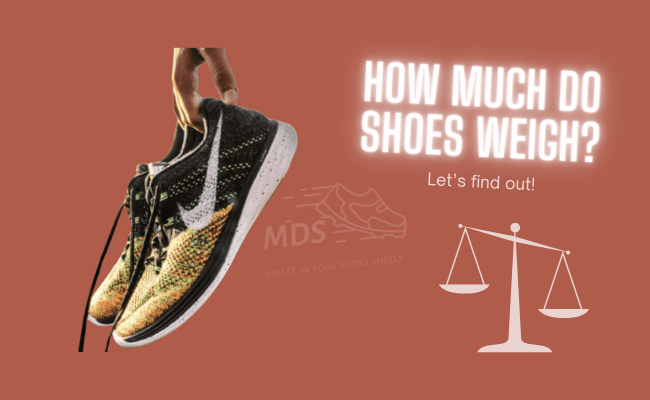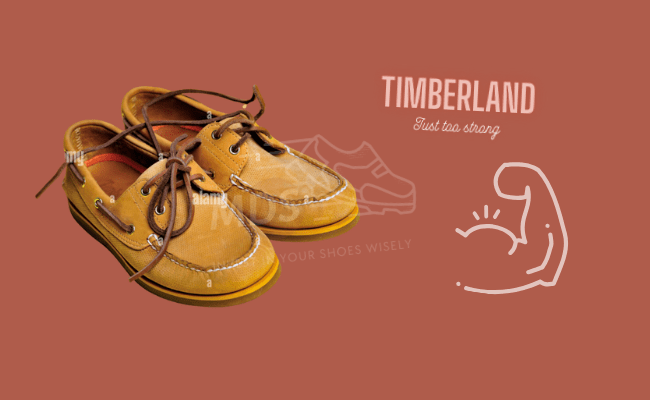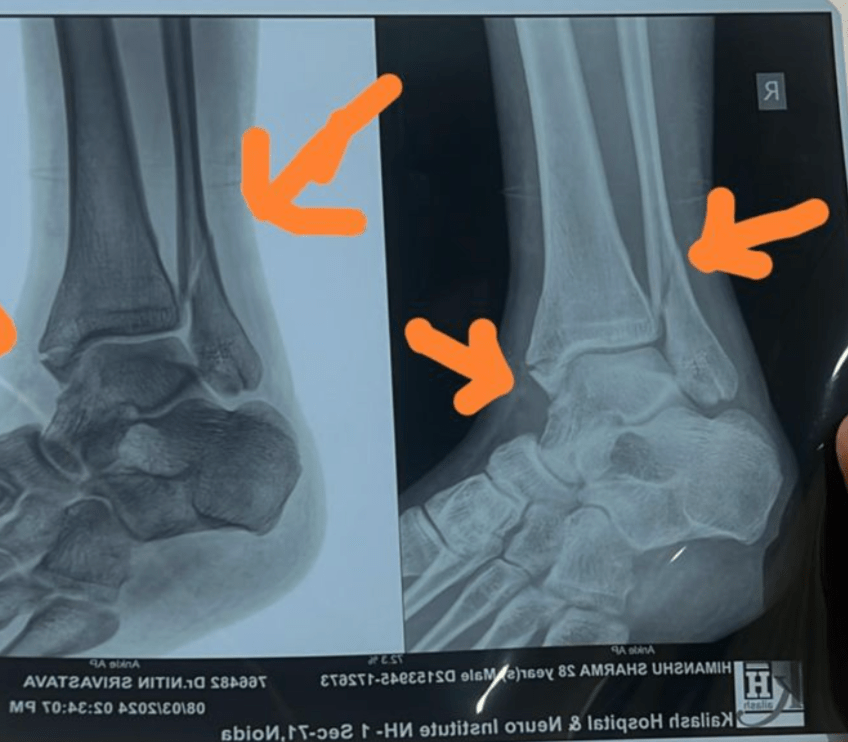How Much Do Shoes Weigh? Right Weight for Running Shoes

On average, each shoe weighs between 280 to 400 grams, with the pair weighing around 560 to 800 grams (1.2 to 1.76 pounds). While the heaviest shoes can be insanely heavy, and the lightest pair can make you trip, it’s important to find the right one for yourself that weighs according to your body type as well as your performance requirements.
This is how a podiatrist and I would recommend you to pick your shoes. And today, with a sprinkle of my personal and professional experiences using over 60 pairs of shoes across a span of 25 years, I’ll help you understand the importance of shoe weight and how you should decide whether a pair is heavy or light for you.
Should running shoes be heavy or light?
The ideal weight of your running shoes depends on a number of factors, including your performance expectations, your body weight, and more. For example, if you are looking for a plush pair of runners that give you the utmost comfort and help you run longer trails, Hoka Bondi 7 can be a good option.
This shoe weighs 0.67 LBs (303 grams), has thick cushioning, with a medium soft rear and front forefoot, and an average mileage of 400 miles. As the shoe is slightly on the heavier side, it may not be the fastest on your shelf, but still runs a decent 1 kilometer every five minutes (1 mile every 8 minutes).
Contrastingly, if you want to supercharge your runs and bring down your lap times, Brooks Launch 10 may be the right pick for you. This is one of the lightest running shoes weighing between 209 to 230 grams, with a shoe drop of 10 mm. Its comfortable upper, and balanced midsole make it fit for most terrains and running styles. However, these are not recommendable for longer runs, as their thin material may put a lot of stress on your foot sole, leading to injuries such as a turf toe, plantar fasciitis, or worse- a stress fracture.
Why does shoe weight matter?
The discussion above gives a glimpse of why shoe weight matters. However, there’s more.
Optimum energy consumption, body posture, and confidence
When I was 13 years old, my uncle retired his Timberland boots and gave them to me. As I was always the tall one in my family, these boots fit me almost perfectly and hence I started wearing them EVERY DAY, EVERYWHERE!

And then, this excited kid wore them to a Baseball game. Holy lord! That was a bad day on the field. Neither could I comfortably pitch the ball nor could I run enough runs. Plus, they restricted my mobility as they were too heavy to move. Honestly, I feel tired even thinking of it. However, I did that as a kid and soon my coach helped me find a better pair of baseball shoes- just the perfect weight.
These shoes allowed me to sprint quickly. My runs were more efficient and I felt more confident running around in them. Also, as I became a better and more experienced batter, I realized these shoes also helped me get and stay in the right position while hitting the ball. My stance became more stable, my hits were more confident, and I could channel all my focus to eyeing the ball instead of worrying about my posture while batting.
And this is just an observational story. I recently wrote another article talking about cross-country shoes and discussed the importance of shoe weight in more detail (you can find it here).
Performance and safety
Practical Health on YouTube explains this in detail. He says, Nike ZoomX Vaporfly Next% weighs 0.42 LB (190 grams), while Hoka Bondi 7 shoes weigh 0.67 LB (303 grams).
Now, if you take 180 steps per minute and run 6.3 miles (10 kilometers) in 50 minutes, you will take nearly 9,000 steps. Considering the 113-gram weight difference, you will be lifting up an additional 1,017 kilograms while running in your Hoka Bondi 7. Even though the Hoka Bondi 7 is great for its cushioning, it may not deliver the best lap times and may as well get your lower body tired quickly. On the other hand, the Nike ZoomX Vaporfly will help you channel your energy into running quicker without facing much fatigue.
Factors Affecting Shoe Weight
A number of factors affect the weight of a shoe. Let’s look at them closely.
Material used
While lighter materials, such as mesh and synthetic fabrics don’t increase the weight drastically, heavier materials, such as leather and cushions, add up significantly to the overall weight. To optimize the shoe weight, footwear brands often balance durability and breathability while selecting materials.
Upper design
Usually, shoe manufacturers use lighter materials such as EVA foam, to reduce the weight. However, several varieties of shoes, such as the ones meant for hiking, are heavier than the rest.
It happens because of the full-grain leather (and other materials) in the making of these shoes. Full-grain leather lends durability and excellent water resistance, making it the perfect material for hiking boots.
Construction of the sole
The construction of the sole, including the outsole and the midsole, plays a pivotal role in determining the weight and performance of a shoe.
Take this for an example: Ethylene Vinyl Acetate (EVA) foam is often used in running shoes for making midsoles. (Thanks to their ability to provide cushioning without adding a significant amount of weight into the scheme of things).
This ensures that the shoes are easy on the feet, agile, and ideal for activities, such as marathons where speed and mobility are both crucial.
Outside tread pattern
The pattern of the outsole tread largely impacts the weight of the shoe.
A complex or thick pattern requires a greater amount of rubber, thereby increasing the weight. Hence, even though tread design helps balance the traction, weight, and durability of the shoe, it also alters its overall weight.
Finding the ideal shoe weight for you
Here are a few points you should keep in mind while looking for shoes that weigh perfectly for your needs.
Consult a podiatrist
Only a professional can do a professional’s job. Podiatrists are medical experts who deal with footwear concerns and help people find shoes that best suit their needs.
Define your expectations
Consider a wide set of factors, such as your running style and foot size, in order to ascertain the ideal shoe weight for yourself. From what I have realized, personal preferences play a major role in choosing the right set of shoes. For a jog or run, I would always prefer a shoe with a mesh. However, that would be me because I enjoy wearing a pair of shoes that are lightweight and easy on the feet.
Opting for lighter shoes can also help you enhance your performance—if speed and endurance are your priorities. Similarly, if strength and endurance happen to be your areas of focus, then go for the ones that are slightly heavier.
Prioritize functionality (not just weight)
Pa always told me to focus on functionality and performance rather than solely on weight. While weight is important, it’s important to pick shoes that offer optimal support and protection, even if they lie on the heavier side of the weight spectrum.
Finding shoes that meet your personal requirements whilst enhancing your running experience is key, regardless of their numerical weight.
Listen to your body
Listening to your body is immensely important if you’re trying to determine the ideal shoe weight for yourself. Pay a great deal of attention to how your feet and legs feel during and after wearing different types of shoes.
In case you experience discomfort, tightness, or pain, it could be a sign that the shoes you’ve chosen are not the best for you. As stated earlier in this article, comfort and performance are as important as weight when buying a new pair of shoes.
Marty says!
To put things simply, the weight of your shoes matters more than one may think. Right from conserving the runner’s energy to ensuring their comfort and agility, the right shoe weight can significantly impact their overall performance. While lighter shoes are preferred by people for their energy-saving benefits, it is important to prioritize functionality and endurance over numerical weight alone.
Apart from that, a wide set of factors, such as tread pattern, material used, construction, and purpose can also largely influence your shoe preferences.
So, whether you’re aiming for a lightweight pair for speed or a sturdier option for durability, remember to prioritize what works best for you and your running goals.
Frequently asked questions
Let’s get to some questions and answers.
What is the weight of a shoe box?
Usually, the weight of a shoe box can range between 1.5 and 10 pounds. The exact weight may vary based on the size of your shoes and the material of the box.
Can I use my sneakers to play sports?
A friend of mine started playing Cricket in his regular Sketchers, and as the dew started settling on the ground, he slipped hard and broke his ankle fielding at mid-off. This led to two months of bed rest, and a six-month distance from all sports.

Fortunately, now, after three months of rest, he is better and has started driving again. Hopefully, we’ll see him on the field soon- with suitable footwear. But, all of us may not be as lucky as him. Improper sporting footwear can lead to severe injuries setting us back for months or even years. So, invest in your shoes wisely- as I always say!
